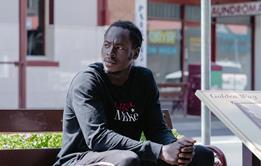‘As a contemporary cult story, this is unlike anything I have ever seen’
Distributor Fifth Season
Producer Warner Bros International Television Production New Zealand
Length 3 x 60 minutes
Broadcaster TVNZ (New Zealand)
Into the thriving sub-genre of documentaries about cults comes Escaping Utopia, a three-part exposé of the Gloriavale Christian Community, which operates on New Zealand’s South Island.
Co-director Natalie Malcon is no stranger to the subject, having documented the history of another New Zealand cult, Centrepoint, in her 2021 feature Heaven And Hell. Some of the Gloriavale story, meanwhile, was covered in an eponymous 2022 documentary for SBS.
Malcon’s latest series aired on TVNZ1 in March and while international viewers less familiar with the story will learn the history of the cult, its treatment in this film is different from previous docs such as Netflix’s 2018 hit Wild Wild Country.
For though Gloriavale was founded in 1969 and its founder Neville Cooper was convicted of three counts of sexual abuse in 1995, this is still very much a presenttense story, with his followers – dubbed the Cooperites – continuing to run the community according to his principles.
Escaping Utopia’s narrative hinges on access to the Gloriavale Leavers’ Support Trust, which has highlighted the abuses and helped former residents integrate into society, and which continues to work to find ways to get messages to those still inside.
In their own words, already rehabilitated former members and those who are freed during the making of the series – many of them born in Gloriavale itself – break their silence to put on record their experiences inside the cult, and the disguises, subterfuge and elaborate ruses employed in their breakouts.
It also highlights that around 600 people remain in Gloriavale – and with procreation being one of the cult’s founding principles, around half of them are children.
Having previously partnered with Warner Bros on scripted shows such as Australian series The Twelve, Fifth Season executive director of acquisitions Liz Tang says she had been looking for a factual proposition with a live investigation element when Escaping Utopia came her way.
“It’s a beautiful and intense story, and it’s incredible to hear these accounts first-hand,” she says. “It was a chance to shed light on things that haven’t been seen before, to expose abuse that is believed to continue today and to ask: how could the most liberal nation allow something like this to exist in plain sight?”
Effectively refugees, most of the escapees have no bank account, driver’s licence or passport, have never handled money, and have been raised to believe they will be eternally damned for leaving.
As well as confronting the psychological barriers to integrating into a society that is alien to them, the film also raises the uncomfortable truth that they all still have family members or loved ones inside.
But Tang promises viewers will see some hope in the outcomes for the people they get to know. “Audiences don’t necessarily want to invest their time and emotion in stories like this without some resolution,” she says.
“As a contemporary cult story, this is unlike anything I’ve ever seen. There’s a lot of emotional intelligence to this series. These are smart, perceptive people who are motivated to tell their story, and even though they might be worlds apart from you, you feel warm towards them, and their journey ahead.”
Unscripted

Including Meet The Neighbours; The World’s Biggest Cruise Ship; The Steal; My Family Mystery; Escaping Utopia; The Push; Side Hustlers
- 1
- 2
- 3
- 4
- 5
 Currently
reading
Currently
reading
Hot Picks: Escaping Utopia
- 7
- 8
- 9
- 10
- 11
- 12
- 13
- 14

























































No comments yet